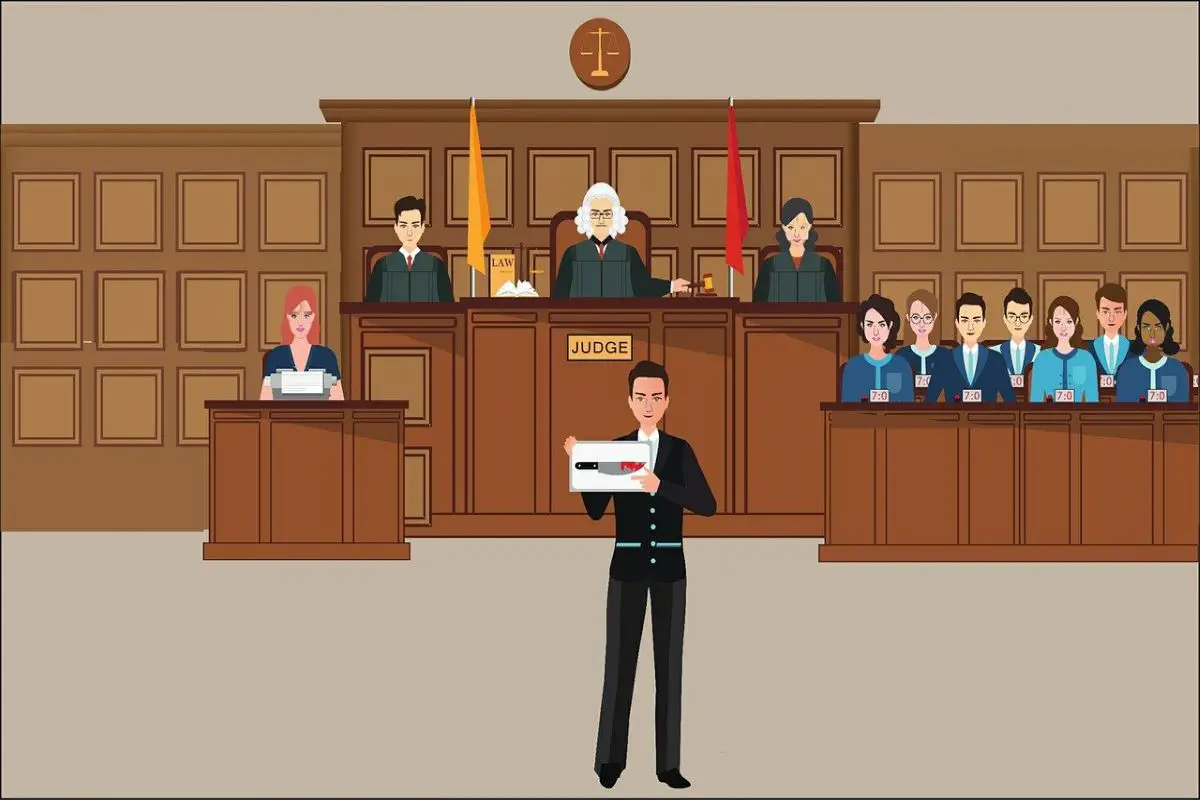An important word used in the law that everyone needs to understand is Acquitted. Law is a fascinating field, and terms used by lawyers are eloquently crafted to represent the justice system in its fine details.
But what does acquitted mean? Acquitted is a legal term that describes how a jury or judge in a criminal case finds someone not guilty of the charges that have been brought against them. It is essentially the opposite of “convicted,” which describes when a defendant is found to be guilty of a crime.
There are several ways for a person to be acquitted. A judge can determine that there’s not enough evidence to convict. The jury can find the defendant not guilty during deliberations, or the prosecution can decide to drop charges before trial.
When looking for the answer to what does acquitted mean, you should know that the term “acquitted” can also refer to someone who has been cleared of certain charges but still convicted of others. For example, in some cases, judges may dismiss some of the counts against a defendant and then rule on what remains. In these situations, the defendant will be convicted on some counts and acquitted on others.
Does Acquitted Mean Not Guilty?
When people look for the answer to what does acquitted mean, they realize there are many misconceptions about what “acquitted” means in the criminal justice system. Acquittal is a term used to describe the final trial result; either criminal or civil when the defendant has been found not guilty.
The acquittal process starts when the defendant or their attorney files an appeal with the court that tried their case to have the conviction overturned. When this happens, it will usually be heard by a higher court. In some instances, the judge may rule that it should go directly to appellate review; this is where all parties will argue their points again and try to convince the appellate court why they should be acquitted.
The appeal process can take several years, depending on how complicated the case is. If you have recently been acquitted, here are some things you need to know:
It does not mean you were exonerated from all charges. While being acquitted at trial means that you did not commit any crimes, it does not mean that your record has been wiped clean or that no charges are pending against you. It’s possible for someone who was acquitted at trial to face charges later on because prosecutors might decide they have enough evidence to bring new charges against them.
You may like this article: Not Paying Your Lawyer?
Is It Possible To Overturn An Acquittal?
Yes. It is possible to overturn an acquittal in a criminal trial. It’s called “double jeopardy,” and it means that a person cannot be tried twice for the same crime. This is guaranteed by the 5th Amendment of the U.S. Constitution, which says, “No person shall… be subject for the same offense to be twice put in jeopardy of life or limb.”
However, there are a lot of exceptions to double jeopardy. The first exception is when the court made a mistake during the trial; for example, they allowed evidence that should not have been admissible. In this case (known as “appeal”), the defendant can appeal their conviction or sentence and ask a higher court to reverse it.
In another case (known as “writ of error coram nobis”), if new evidence emerges after trial and it would have changed the outcome, then an appeal may also be granted.
Lastly, when crimes are committed across state lines, each state can try them separately; in these cases, an acquittal in one state does not prevent being tried again in another state for the same crime.”
Does Your Record Get Wiped Clean After An Acquittal?
Many assume that if a defendant is acquitted, their record is technically wiped clean. However, this is not necessarily the case. There may still be evidence of that original arrest depending on the proceedings. While the defendant’s innocence may be legally established in an acquittal; the arrest and its associated records are still part of the public record.
Essentially, being found innocent at trial does not mean that your arrest has been erased from your personal history or even from police records. The reality of being acquitted depends on the circumstances of your case; ultimately it’s up to you whether you want to pursue ways of expunging or sealing those records from public view.
Are Acquittal And Dismissal The Same?
No, they are not the same. When you get the answer to what does acquitted mean, you will realize acquittal is a decision that you did not commit the crime you were accused of. Dismissal is a decision that the case is terminated without determining whether you committed the crime or not.
The distinction between acquittal and dismissal is subtle but important. A dismissal does not mean that you are innocent of the charges; rather, it means that, for some reason, the prosecutor was unable to prove his case against you. An acquittal occurs when the judge or jury determines that there is not enough evidence to prove beyond a reasonable doubt that you committed the alleged crime.
What Is The Procedure After An Acquittal?
When a defendant is acquitted or found not guilty, the legal process is over after going to trial, and the defendant is free to go.
After an acquittal, a defendant can expect to have any bail money returned (though any fees paid to a bail bond agent will likely be non-refundable). The defendant also may be able to retrieve any property that was confiscated as evidence or as part of their arrest.
In some cases, a person who has been acquitted may sue the government for malicious prosecution if they suspect that they were prosecuted without probable cause. Whether or not the government will be required to pay damages in such a case depends on several factors; including whether the prosecution made its case in good faith and whether there was probable cause for the initial arrest.
You may like this article: How Long Does Lawsuit Take To Settle?
What Is The Meaning Of Unanimously Acquitted?
When a defendant is unanimously acquitted, it means that the jury determined that the defendant was not guilty. In other words, the prosecution failed to prove that the defendant committed the crime for which they were being charged.
This can happen in either a criminal or civil trial. When a defendant is unanimously acquitted, it means that all of the jurors on the panel agreed that they were not guilty. If there is dissent among the jurors and they cannot reach a unanimous decision, then a mistrial will be declared.
Conclusion
When people hear the word “acquitted,” they think that this means that their loved one is innocent or that they were not guilty. However, they should know that this just means that the prosecution could not prove the defendant’s guilt beyond a reasonable doubt.
 Being Human
Being Human




